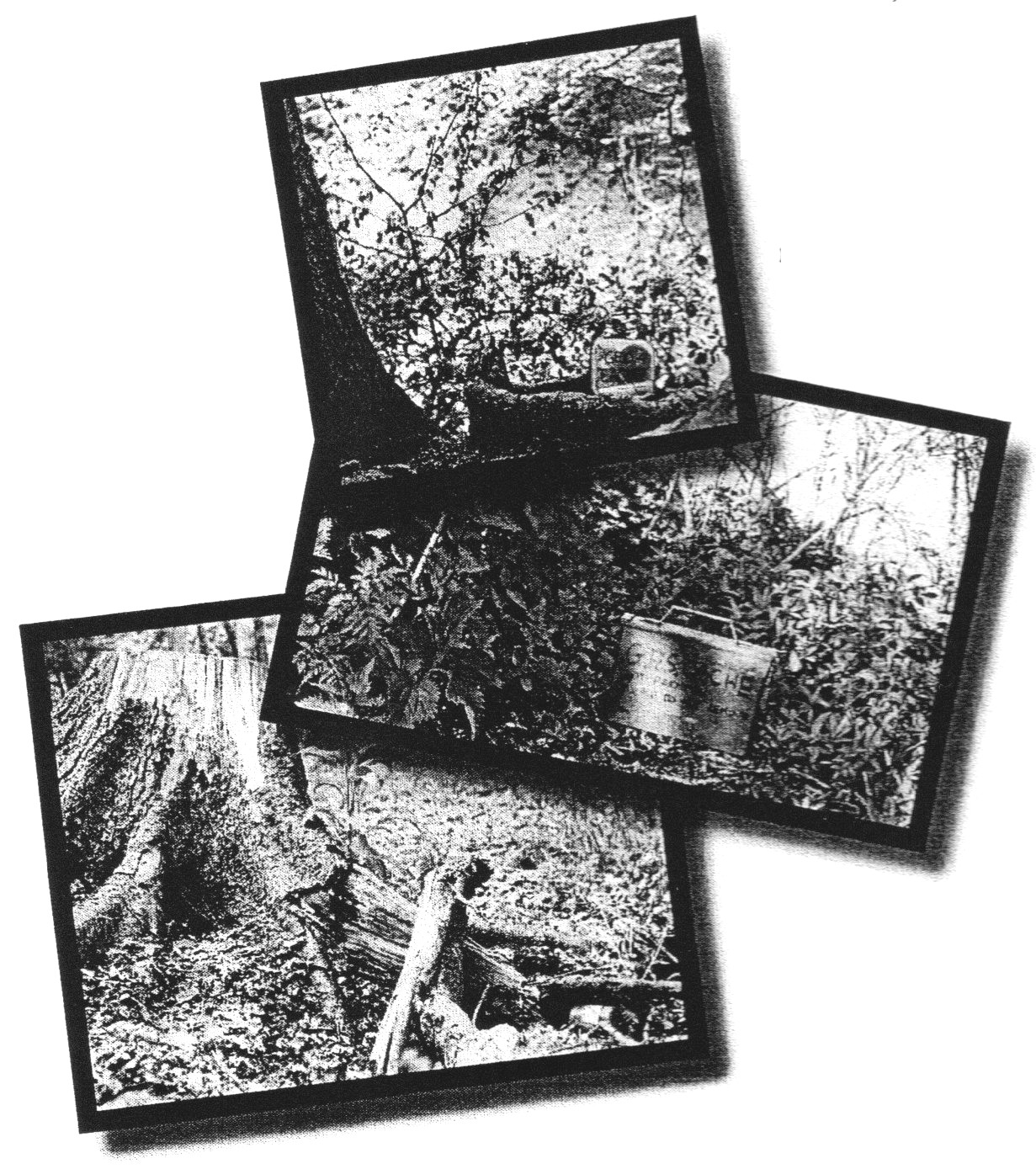The Armchair Treasure Hunt Club
|
| This article first appeared in the August 2002 (issue 63) newsletter. Newsletters are sent
quarterly to all current members.
© 2002 all rights reserved. Reproduction is prohibited. |
High-tech new pastime or just treasure hunting for the bone idle? Clive Weatherley investigates the phenomenon of geocaching
A few years ago a new word entered
the vocabulary of many treasure hunters and puzzle-lovers, if not the
nation's dictionaries. The word was "geocaching" and since it was coined
the pastime that it describes has grown beyond all recognition.

I think it's fair to say that geocaching probably developed by accident. When personal GPS units plummeted in price five or so years ago, access to a skyful of technology became affordable and irresistible to millions overnight. So an awful lot of people (okay, me included) rushed out and bought one - and were suitably impressed by the amazing technology that the little mobile-phone-like gizmo quite genuinely represents. But once you'd plotted a few waypoints as 10-digit Ordnance Survey references, or created a map of your day's destinations, or used the 'moving map' feature to navigate your way back to point B, there was a problem: it didn't have any real-life use. Now I walk a lot, often venturing into some of the remotest corners of Dartmoor, and am a whizz with my sighting-compass and OS map but I've rarely felt a genuine need to tune into all that space hardware.
So... somebody invented a use for all those dust-gathering GPS units which was geocaching, probably best thought of as bionic letterboxing'. In a nutshell: person A gets together a little box of goodies and buries or hides it, taking a GPS reading of the chosen site. He publishes this GPS reading on the internet together with a description plus any message, often encoded, so that persons B to Z can punch the reading into their own GPS units, hit 'Go to' and be guided electronically to the cache - from which they may take something away provided they leave something in its place. And, erm, that's it.
Now, given that this article is being read by people who are used to devoting months of intricate research and half the contents of the British Library to half a page of cryptic text, that may sound a bit tame. In fact to the more, let's say, 'enthusiastic' of our membership, it may even come across as an utterly pointless waste of time, akin to printing a crossword solution next to its empty grid.
To an extent I can empathise. I myself had a go at geocaching a couple of years back when it was still in its mewling infancy. There were fewer than 50 caches in this country (it's a global thing) with only a handful likely to be in reasonable driving distance. I found three successfully, failed to find the (then) only London cache, on Hampstead Heath, and then lost interest.
My dabblings took me to a strange little island in Waterbeach near Cambridge; to a wood near Berkhamsted where the cache was under the roots of an old oak; and to a surreal tree-ringed pit near Penn dotted with burnt-out cars. The caches themselves contained an assortment of weird and wonderful objects - from CD-ROMs to Christmas decorations, from a titanium wristwatch to a miniature monkey-wrench.
Well, that was then - and I'm pleased to report that geocaching has since moved on in a very big way. For a start there are now nearly a thousand caches in the UK alone: the geocaching email that you can subscribe to can list around 50 new ones every month. People are being more cryptic with their descriptions and there is often more to puzzle out. New variations on the basic theme have evolved, such as cache chains where boxes contain readings to the next box, and so on. You can even buy geocaching merchandise such as t-shirts and baseball caps.
Despite the apparent lack of challenge, geocaching does have its obvious appeals. As in letterboxing, you go to places you would never have otherwise visited. There is the thrill of unearthing something that you know has been walked past by thousands of people. There is the mystery of not knowing what the cache contains until you prise the lid off. And of course you can pretend you're on Star Trek as your little hand-held gadget guides you to your target and beeps triumphantly when you reach it.
If you've been struggling for months on a particular hunt, and almost given up hope of ever striking buried treasure, geocaching may provide the next best thing. At least you know you'll find something and, however diminished, that is still an undeniable thrill. To get started you need only a GPS unit (basic models now start at about £80) set to the map datum WGS84, and internet access (HQ is www.geocaching.com) -- and off you go. Given the current level of the phenomenon, I for one am certainly intending to retrieve my GPS from the back of the drawer, punch in a few new waypoints and stride out to find who knows what when I have a free afternoon. I may even venture back to Hampstead Heath...